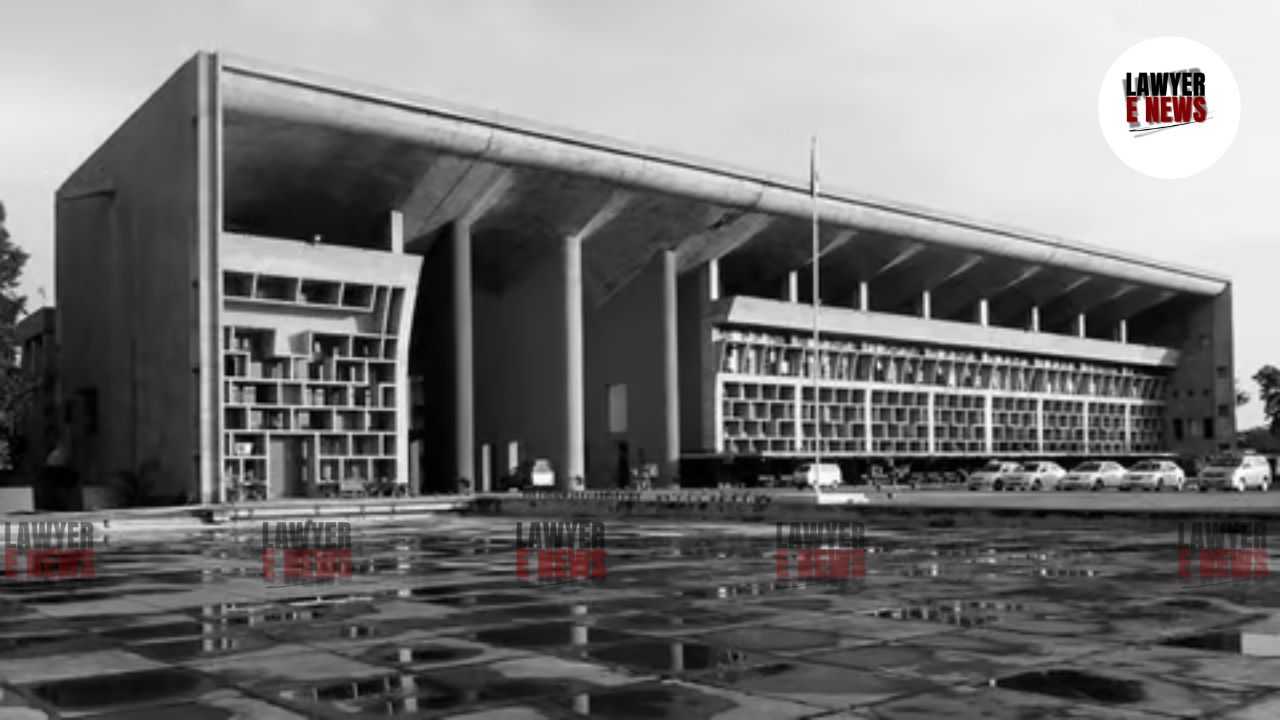-
by Admin
15 February 2026 5:35 AM



In a significant ruling, the Punjab and Haryana High Court has quashed an FIR filed against Sunil Chauhan and others under Sections 306 and 34 of the Indian Penal Code (IPC) for allegedly abetting the suicide of a construction worker, Kehri Singh. The court held that mere non-payment of dues does not constitute abetment, stressing that the necessary ingredients for the offense under Section 306 IPC were absent.
The case arose from an FIR registered on July 15, 2023, at Police Station Adarsh Nagar, Faridabad, following the suicide of Kehri Singh, a construction worker. The complainant, Shiv Kumar, the brother of the deceased, alleged that Sunil Chauhan, along with Narendra Kumar Sharma and Mubin Khan, had refused to pay substantial amounts owed to Kehri Singh for construction work. It was claimed that this non-payment led to the deceased's severe mental harassment, compelling him to take his own life by hanging on July 14, 2023. A suicide note and a video recording were cited as evidence.
Justice Jasjit Singh Bedi, who presided over the case, analyzed the provisions of Sections 107 (Abetment of a thing) and 306 (Abetment of suicide) of the IPC. The court observed that for an act to qualify as abetment, there must be a clear and direct link between the instigation by the accused and the suicide of the deceased. The court highlighted that merely refusing to repay a debt or withholding payment does not constitute an instigative act under Section 107 IPC.
The court underscored that the allegations against the petitioners, which primarily involved non-payment of dues, did not meet the legal threshold for abetment. The judgment pointed out that there was no evidence of any overt act, instigation, or conspiracy by the accused that could be seen as having driven the deceased to commit suicide. The court remarked, "A person of ordinary prudence would not have committed suicide under such circumstances; rather, legal remedies for recovery of dues were available."
The High Court referenced multiple precedents, including Chitresh Kumar Chopra v. State (Govt. of NCT of Delhi) and Didigam Bikshapathi v. State of A.P., which outline the necessity for a direct connection between the accused's actions and the suicide. The court concluded that the petitioners' actions did not meet these criteria, as there was no evidence of intent or actions specifically aimed at inciting the deceased to commit suicide.
In a critical observation, Justice Bedi stated, "Merely being named in a suicide note does not establish guilt under Section 306 IPC unless the specific ingredients of abetment are evident." The court further noted, "The deceased's hypersensitive reaction to the non-payment of dues cannot be equated with the legal requirements for abetment."
The judgment quashing the FIR marks a significant clarification on the legal interpretation of abetment to suicide, particularly in cases involving financial disputes. By affirming that non-payment of dues, without more, does not amount to abetment, the court has reinforced the necessity of a clear and direct link between the accused's actions and the suicide for a conviction under Section 306 IPC. This ruling is likely to influence future cases where the scope of abetment to suicide is in question.
Date of Decision: 02 September 2024
Sunil Chauhan vs. State of Haryana & Another
